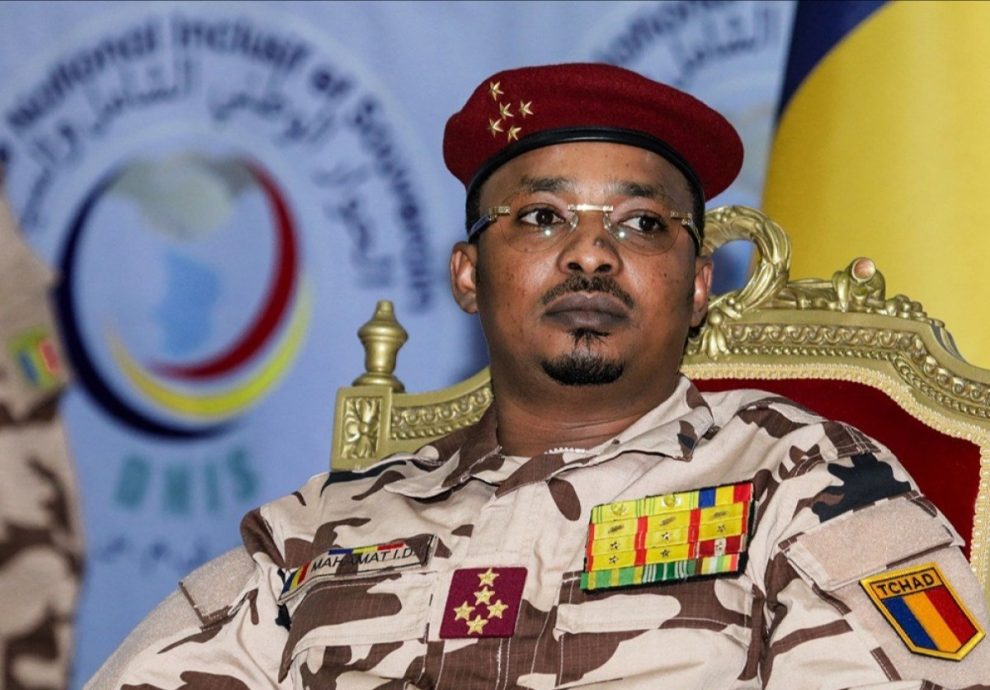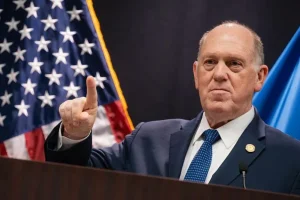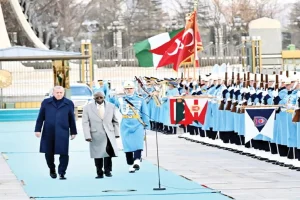N’Djamena, Chad – The central African nation of Chad has announced the suspension of all visas for US citizens, citing “reciprocity” after learning it is among a dozen countries whose nationals face restrictions on entry to the United States.
In a Facebook post on Thursday, Chadian President Mahamat Idriss Déby Itno asserted, “Chad has neither planes to offer nor billions of dollars to give, but Chad has its dignity and pride.”
The new US travel ban, set to take effect on Monday, disproportionately affects Africa, with seven of the 12 listed countries being on the continent. The order prohibits entry to the US for individuals from Chad, Congo-Brazzaville, Equatorial Guinea, Eritrea, Libya, Somalia, and Sudan, as well as Afghanistan, Myanmar, Haiti, Iran, and Yemen.
Additionally, nationals from Burundi, Sierra Leone, Togo, Cuba, Laos, Turkmenistan, and Venezuela will face restrictions on certain types of US visas.
US President Donald Trump, in a video posted on X, stated, “We will not allow people to enter our country who wish to do us harm.” The White House described these as “common-sense restrictions” designed to “protect Americans from dangerous foreign actors.” Trump indicated the list could be revised based on “material improvements” or expanded if new “threats emerge.”
Reactions from affected nations have varied. Somalia quickly pledged to cooperate with the US to address any security concerns, with its ambassador to the US, Dahir Hassan Abdi, emphasizing the country’s value for its “longstanding relationship” with America.
Chad, however, expressed clear dismay. Foreign Minister Abdoulaye Sabre Fadoul told AFP news agency that his government was “surprised by this announcement and even more by the terrorism-related reason [which] completely disregards Chad’s commitment and results in this area.” The African Union voiced “concern about the potential negative impact” of the measures, urging the US to adopt “a more consultative approach.”
Eritreans have voiced alarm over the ban. One anonymous individual told the BBC, “As Eritreans, we’ve already suffered under our regime at home and now we’re facing the same hardship under Trump’s immigration policies.” Another Eritrean woman expressed worry about her and her children’s ability to join her husband in the US, despite having followed legal processes for years.
In a video on his Truth Social website, Trump linked the ban to a recent alleged terror attack in Boulder, Colorado, which he claimed “underscored the extreme dangers” posed by unvetted foreign nationals. However, the suspect in that incident is an Egyptian national, a country not included in the ban.
According to the White House, countries like Libya, Somalia, and Sudan lack competent authorities to issue secure passports or civil documents and conduct “appropriate screening measures.” These three nations are currently embroiled in civil conflicts. The White House also cited a “persistent terrorist threat” from Somalia and a “historical terrorist presence within Libya.”
Other affected African countries were included due to high rates of visa overstays, ranging from 15% for Togo to 70% for some visa types from Equatorial Guinea.
The ban is scheduled to take effect on June 9, allowing a brief period to avoid the widespread airport disruption seen when a similar measure was implemented with little notice eight years ago. Visas issued before this date will remain valid. Exemptions are planned for dual nationals and athletes participating in major international sporting events, such as the 2026 men’s football World Cup and the 2028 Summer Olympics in Los Angeles.
This travel ban fulfills a promise made by Trump during his 2024 election campaign. A similar order signed during his first term in 2017, which initially targeted seven Muslim-majority countries before being revised, was upheld by the Supreme Court in 2018. That ban was repealed by President Joe Biden in 2021, who called it “a stain on our national conscience.”





Add Comment